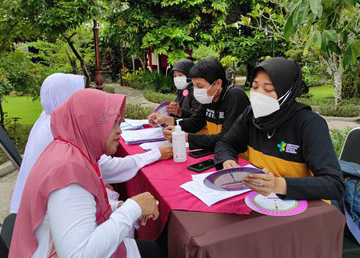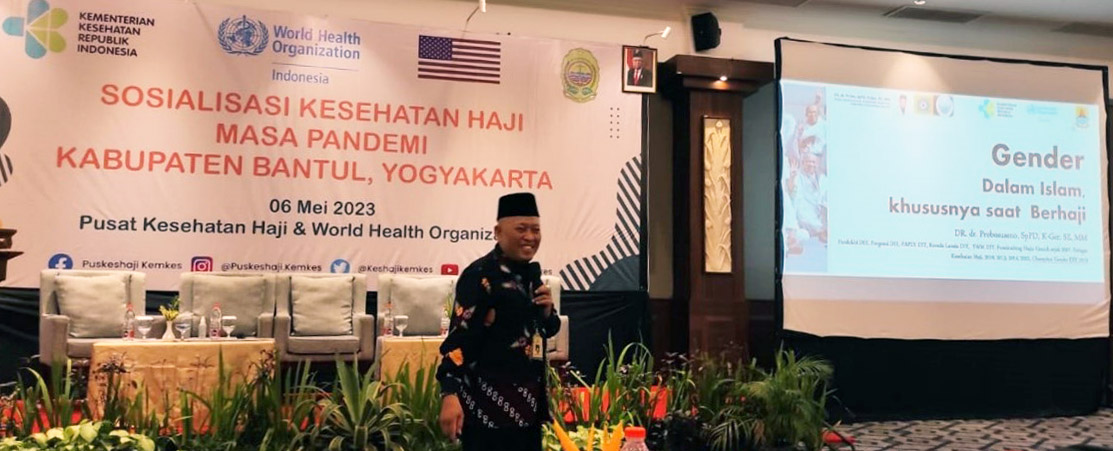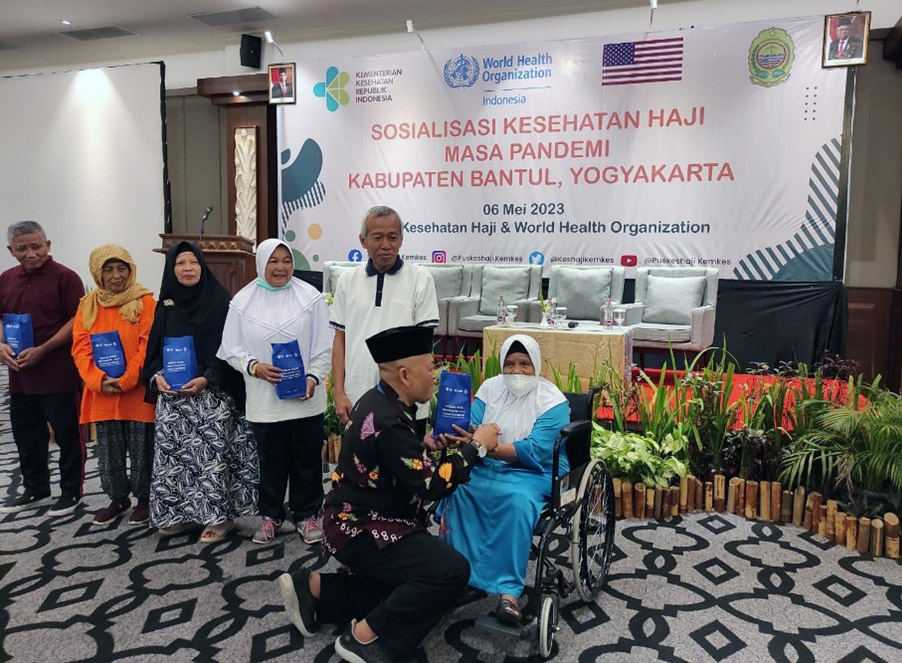Millions of pilgrims travel to Mecca every year for the Hajj pilgrimage. This year, around two million pilgrims are expected to gather in Mecca for the Hajj, a significant increase compared to the limited numbers in previous years due to the pandemic. Among the two million pilgrims, more than 200,000 people will be from Indonesia. With such a large number of people engaging in intense physical activities within confined spaces, the pilgrimage poses various health risks. Fatigue, dehydration, existing health conditions, and infectious diseases like COVID-19 and MERS-CoV are common health concerns during Hajj.
In addition, around 40% of Indonesian pilgrims are elderly, who are more likely to experience health conditions associated with ageing. There are also pilgrims living with disabilities who need assistance throughout the Hajj. Recognizing the high number of pilgrims, the Government of Indonesia has initiated outreach efforts in selected districts to protect the health of its citizens on this sacred voyage.
From April-May 2023, WHO collaborated with the Centre for Health of Hajj of the Ministry of Health (MoH) in conducting outreach meetings for 600 pilgrims across five priority districts: Cirebon, Bantul, Pekanbaru, Pacitan, and Kudus. The sessions covered essential topics such as health check-ups, coaching, vaccinations, and orientation on health protocols.
 Healthcare workers provide coaching and personalized recommendations, empowering Hajj pilgrims to prioritize their health and engage in exercise. Credit: WHO/Endang Wulandari
Healthcare workers provide coaching and personalized recommendations, empowering Hajj pilgrims to prioritize their health and engage in exercise. Credit: WHO/Endang Wulandari
To improve pilgrims’ understanding of measures to prevent infections, speakers shared insights on maintaining health before departure, during Hajj, and upon their return to Indonesia. A captivating video on Hajj pilgrims’ health, jointly produced by MoH and WHO in 2020, was screened to introduce the different health concepts.
The outreach meetings did not stop at health education alone; speakers also emphasized the importance of gender equality during Hajj. Women and men share the same rights and deserve equal support throughout their pilgrimage. Initiatives were put in place to ensure women's safety and address their concerns. Female security personnel were present, ensuring their well-being, and women-only transportation options were available to accommodate their unique needs and preferences.

Dr Probo Suseno, a resource person in the outreach session, highlighted the importance of gender balance within the Muslim community and during the Hajj. Credit: WHO/Endang Wulandari
“This initiative is really useful to ensure the health of prime pilgrims during Hajj. This will improve Hajj health and prevent communicable diseases transmission among the pilgrims,” said Imran Cahyono from the Centre of Health for Hajj.
By empowering pilgrims with knowledge and promoting healthy behaviors, they significantly reduce the risk of health complications during Hajj. It is not just about the health of individuals; these outreach activities will also help safeguard the entire community of pilgrims and prevent the transmission of communicable diseases.
This successful pilot project demonstrates its potential to become an integral part of regular programmes, including medical check-ups and community empowerment for Hajj pilgrims. WHO remains committed to supporting Indonesia in ensuring sustained efforts to improve the health and well-being of all those embarking on this sacred voyage.

The outreach meetings also paid attention to Hajj pilgrims with disabilities, ensuring they have the opportunity to participate fully in the Hajj. Credit: WHO/Endang Wulandari
This initiative is generously supported by the Government of the United States of America.
Written by Endang Wulandari, National Professional Officer (Epidemiologist), WHO Indonesia.
